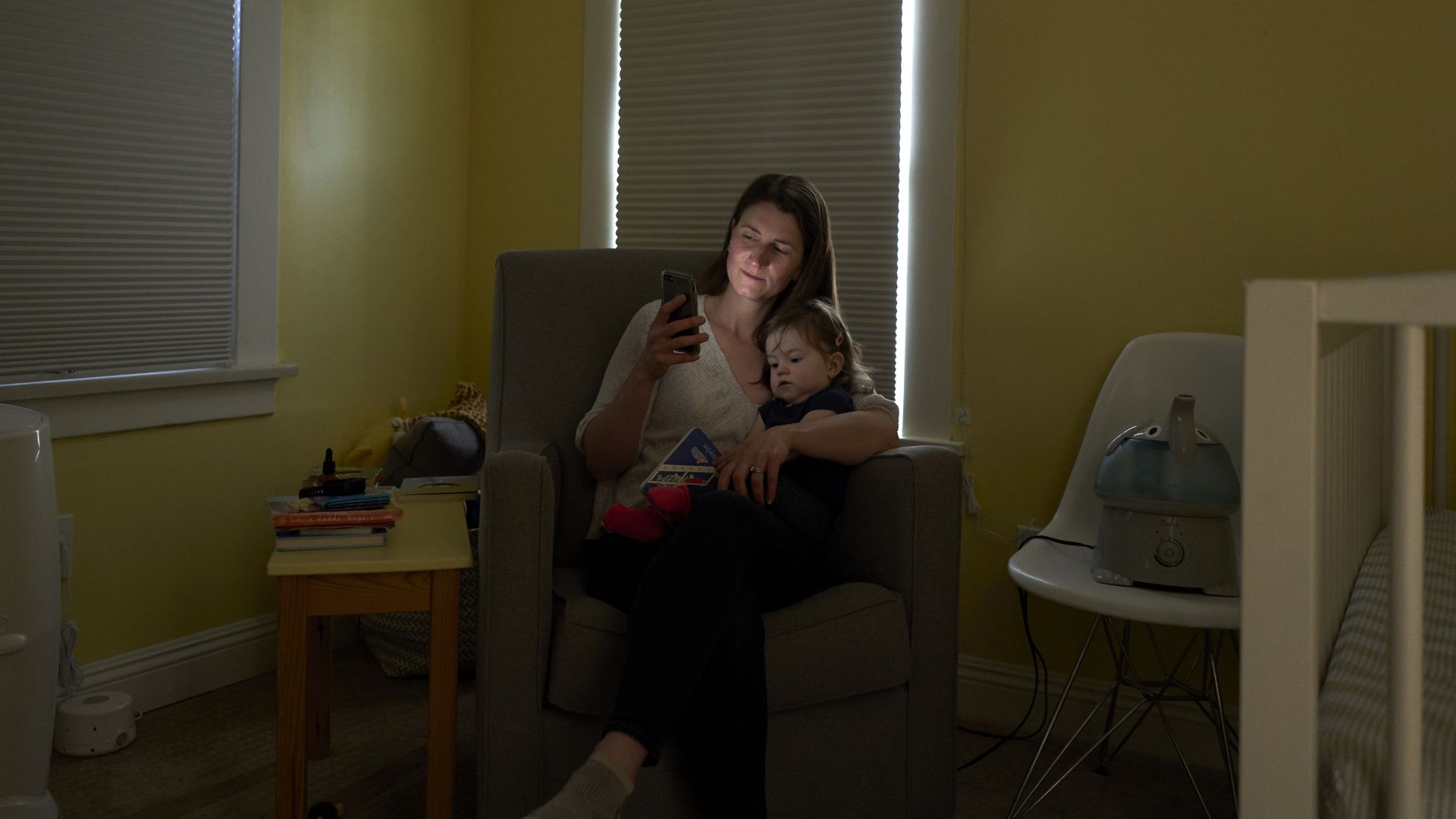Apr 10, 2019 - Technology
Employers, insurers pay for data from pregnancy tracking apps
Add Axios as your preferred source to
see more of our stories on Google.

Diana Diller used the pregnancy-tracking app Ovia to track her pregnancy. Photo: Philip Cheung for The Washington Post via Getty Images
